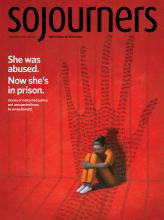SOME PEOPLE SEEM to relish being described as “prophetic voices.” I’ve never enjoyed being called that. Old Testament prophets seem rather lonely and cranky, and, despite some of the things I write, I am not cranky after I have my coffee.
I wanted to write this column with more levity, more joy, and more hope. My first upbeat draft didn’t feel quite right, a bit forced, but I submitted it—trying to honor the deadline and ignoring my gut that was telling me the words didn’t match my heart.
Hours later, white supremacists marched at the University of Virginia carrying Tiki torches and shouting Nazi slogans.
Read the Full Article

Already a subscriber? Login
